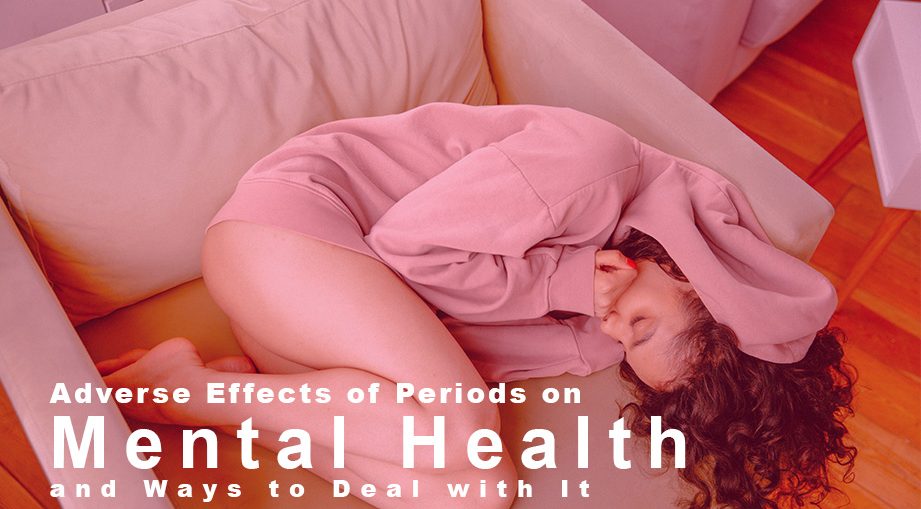The link between the menstrual cycle and hormones
The menstrual cycle is linked with hormonal changes in the body. It is regularized by two key hormones, namely estrogen, and progesterone. The levels of both these hormones may vary across different points in the menstrual cycle.
It is important to note that estrogen levels usually remain lower just after the ovulation period and before the period begins (or bleeding starts). This is known as the premenstrual stage. More than 80% of women having periods experience one or more negative symptoms directly resulting from premenstrual hormones. Some of these symptoms include tiredness, bloating, breast tenderness, or headaches. Low levels of estrogen can further affect other chemicals present in the brain, such as serotonin. Serotonin is a chemical that is responsible for mood balancing. When Low levels of estrogen affect this chemical, it may result in depression.
Low serotonin is also associated with craving carbohydrates that create a burning sensation, especially when the period is due. It may also result in common medical conditions like acne, migraines, prickly bowel syndrome, etc. These medical conditions can also worsen at certain points in the menstrual cycle.
How does the menstrual cycle affect mental health?
Do you know your menstrual cycle not only affects daily life physically but is also linked to your mental health? Yes, many women during their period experience various mental health issues. Two of the most familiar issues are:
Premenstrual Syndrome (PMS):
A week or two before the period starts, several women experience Premenstrual Syndrome (PMS). It is a mental condition that makes a person uneasy, sadden, short-tempered, and anxious. The symptoms can be described as:
- Mood swings
- Food cravings
- Fatigue
- Irritability and depression
Premenstrual Dysphoric Disorder (PMDD):
There is a more severe mental condition known as Premenstrual Dysphoric Disorder (PMDD). It happens in around 3 to 8% of people. The condition can badly affect a person’s mental health by leading to extreme tiredness, depression, difficulty focusing, and panic attacks. As per a report by Mayo Clinic, women suffering from PMDD usually deal with at least one major emotional and behavioral symptom, which can be:
- Depression or hopelessness
- Nervousness or anxiety
- Severe moodiness
- Noticeable irritability or annoyance
- Headaches
- Intense anger and clash with other people
- Less or no interest in daily activities
- Trouble in concentrating
- Extreme fatigue
- Joint or muscle pain
- Changes in appetite
- Feeling out of control
- Sleep issues
- Painful cramps and bloating
- Breast tenderness
- Hot flashes
How PMS and PMDD are linked to mental health?
Although the exact cause of PMS and PMDD is unknown, most researchers have suggested that both these conditions are related to hormonal changes in the body. And these hormonal changes correspond with the menstrual cycle. As per some studies, it has been revealed that there is a link between PMDD and low serotonin levels. Serotonin is a chemical present in the brain that helps in transmitting nerve signals. It helps to control sleep, pain, and mood. Any changes in the serotonin level can lead to PMDD conditions.
Depression and anxiety are some of the common symptoms in both PMS and PMDD. However, any hormonal changes that lead to the menstrual cycle can deteriorate the symptoms of mood disorders. Various mood disorders can further affect personal relationships and may create more stress on both a person’s mental and emotional health.
How to deal with PMS and PMDD during periods?
Some of the common treatment options that can help in managing both PMS and PMDD symptoms include:
- Regular exercise
- Antidepressants
- Therapy for maintaining hormone level
- Diet changes
- Vitamin supplements
- Stress management practices
- Anti-inflammatory medicines
If the symptoms persist like breast tenderness, cramping, headache, and backache it is advisable to consult your doctor and take the necessary steps.
Conclusion:
Though the menstrual cycle is often viewed as a physical experience, symptoms like PMS and PMDD prove that the cycle each month can greatly impact a woman’s mental health. Managing mental health during periods is essential to remain happy and healthy. Along with practicing good mental health practices, it is also necessary to use a soft & secure, sanitary pad during periods to manage bleeding while ensuring dryness and full comfort.







